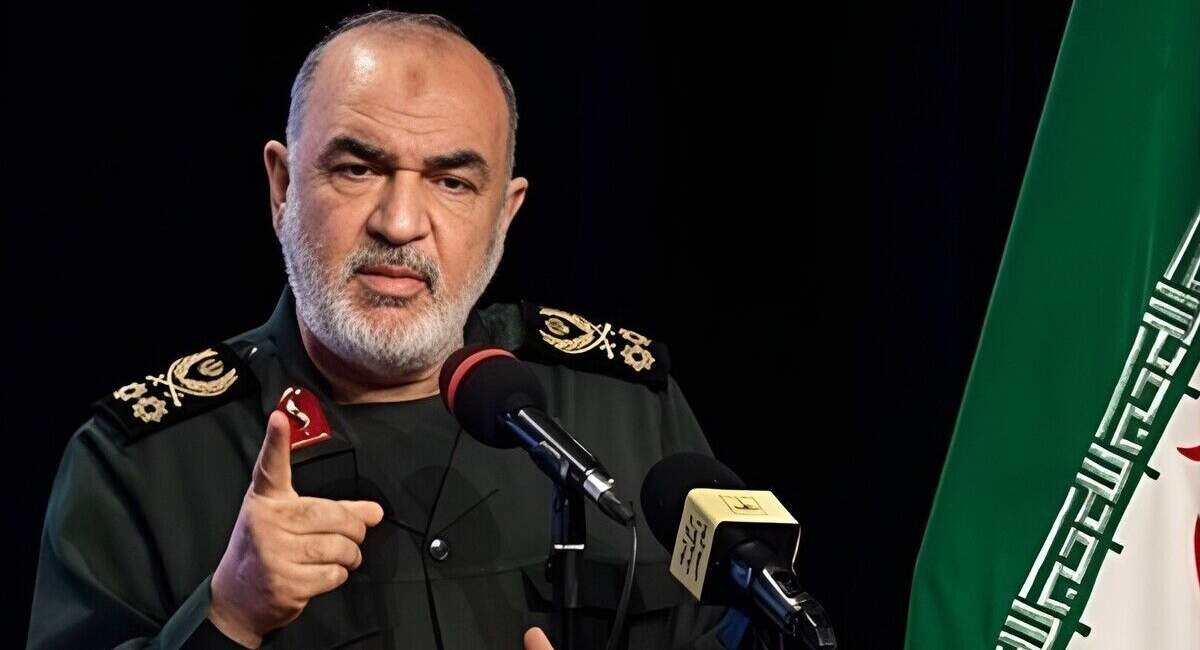Tehran will not start war, but will retaliate powerfully: IRGC chief

TEHRAN — Major General Hossein Salami, Commander-in-Chief of Iran’s Islamic Revolution Guard Corps (IRGC), delivered an address to senior military officials on Saturday, reiterating Iran’s defensive posture while warning adversaries of catastrophic consequences.
“We will not initiate war, but we possess overwhelming power to confront any aggression,” he declared, emphasizing that psychological and military confrontations have only fortified the country’s resolve.
Salami marked the Israeli regime’s April 2024 unlawful attack on Iran’s Damascus consulate, which killed senior IRGC commanders, including Brigadier General Mohammadreza Zahedi, as a turning point in recent events in West Asia.
“This aggression marked the beginning of a global confrontation,” he stated, describing it as a pivotal moment in Islamic history.
The subsequent True Promise operations—Iran’s retaliatory missile and drone strikes on the Israeli regime—penetrated what Salami called “the most fortified airspace in history,” comprising Iron Dome, David’s Sling, and THAAD systems.
“Our missiles penetrated their illusions of security,” the general said.
Salami also mocked Tel Aviv’s reliance on Washington, comparing it to “a zero appended to America’s one. Cut off weapons, and it collapses.”
‘Gaza is history’s most astonishing tale’
The general also praised the resilience of Palestinians in Gaza, describing it as the most amazing story in history: “In a completely besieged strip, without water and food, under the enemy’s ruthless fire, the people of Gaza stand firm and do not allow the enemy to prevail.”
“We are facing a frustrated and nervous enemy that cannot defeat an unarmed people,” Salami stated.
The commander extended this solidarity to Yemen’s Ansarullah, Lebanon’s Hezbollah, and Iraqi factions, asserting they form an “unbreakable front against occupation.”
The IRGC chief recounted a series of "painful but galvanizing events," including the "suspicious pager blasts" and Israeli assassinations that martyred Hezbollah commanders and leaders such as Sayyed Hassan Nasrallah—"the spiritual compass of Islamic resistance"—and IRGC commander Abbas Nilforushan.
"These sacrifices," he stressed, "are not endpoints but turning points in our eternal struggle."
Salami lauded the "heroic resilience" of Axis of Resistance allies, emphasizing that despite escalating regional pressures, Iran and its partners remain "steadfast in defending justice and confronting the occupation."
He dismissed adversaries’ claims that such strikes had "crippled the Resistance," arguing instead that the Axis had "exhausted the enemy on the northern front through a year of heroic attrition warfare" while delivering "unmatched support to our besieged brothers and sisters in Gaza."
‘Every inch in occupied territories a target within our reach’
The commander condemned the "arrogant illusion" that Iran’s deterrence had weakened, stating, "The enemy miscalculates by thinking we will bow to ultimatums. We are the IRGC—born from the trenches of sacred defense, molded for epic battles, and loyal to the path of Ashura. We do not fear confrontation; we define it."
Turning to the enemy’s strategic fragility, the commander warned that "their sprawling presence across the region has become their Achilles’ heel. Every inch they occupy is a target within our unerring reach."
“If Resistance were fading, why has the enemy accepted ceasefires or failed its objectives?” he challenged.
Salami dismissed claims of Iranian weakness amid Syria’s turmoil, stressing Tehran’s role was limited to defeating ISIS.
He also said blaming Iran for Syria’s challenges reflects enemy miscalculations.
“The Resistance Front hasn’t yet deployed its full capabilities, choosing instead to exercise restraint over the scope of the conflict,” the commander stated, adding: “However, any escalation will unleash a fire beyond imagination—the sheer magnitude and intensity of the war would far exceed even the enemy’s wildest expectations.”
Leave a Comment